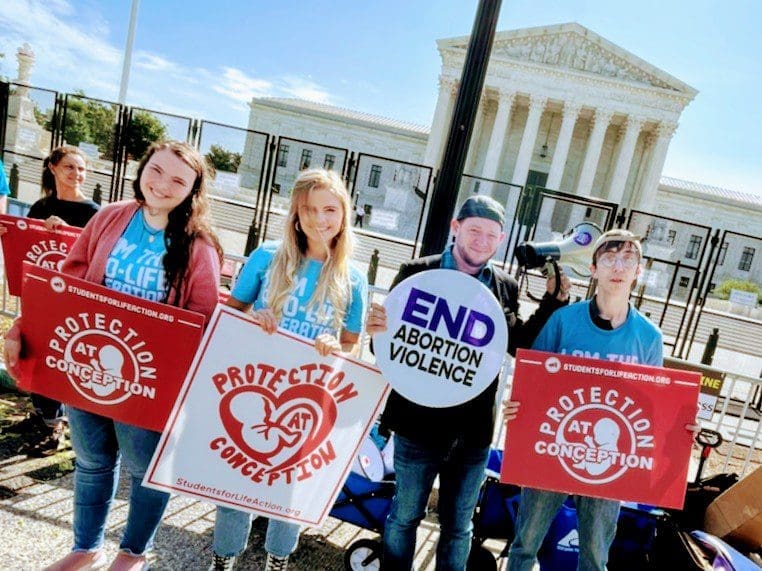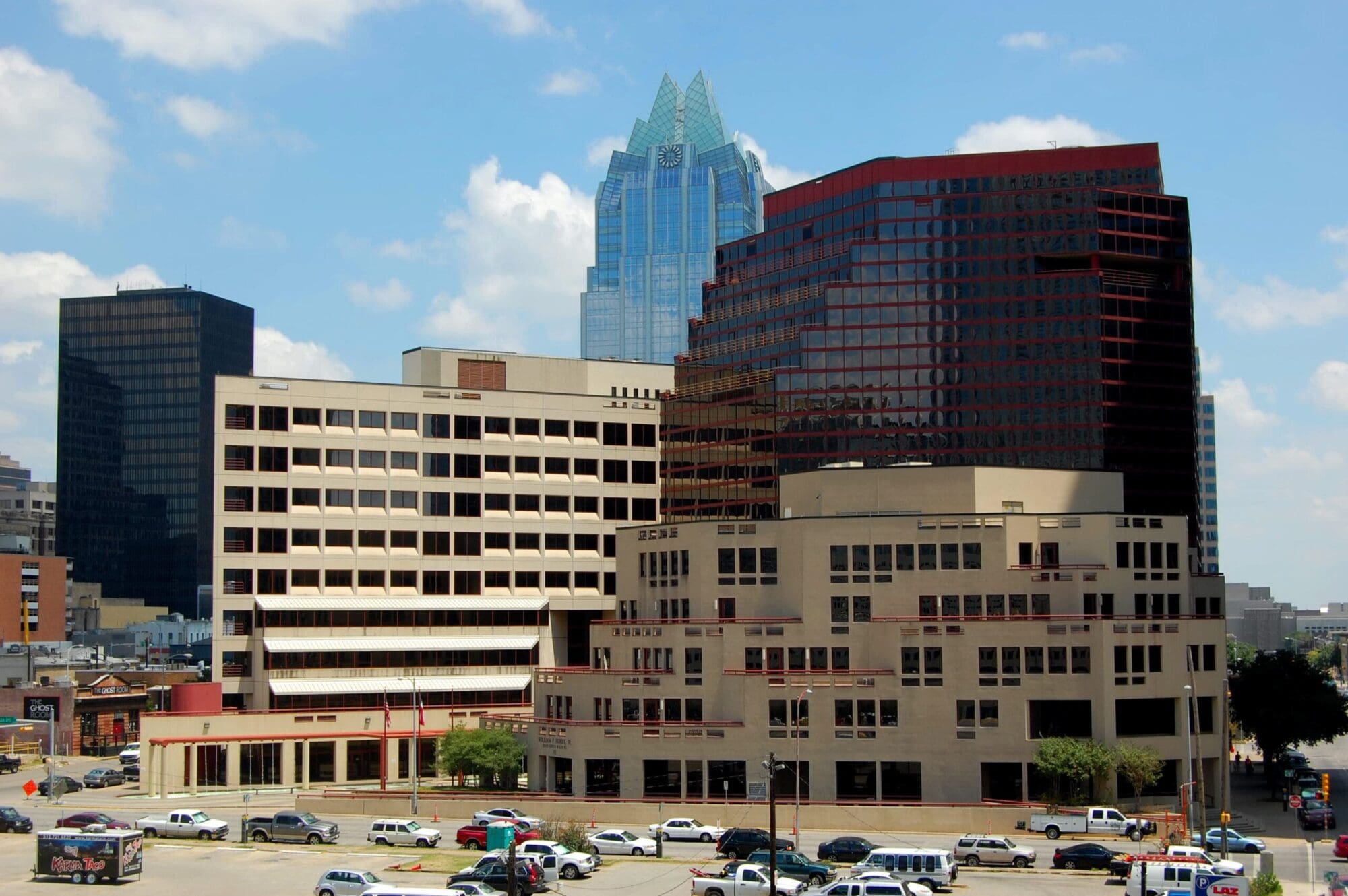On May 2nd, 2022 a draft of Justice Samuel Alito’s opinion was leaked to POLITICO, revealing that the Supreme Court of the United States appears poised to overturn Roe v. Wade and Planned Parenthood v. Casey. While the Supreme Court’s official opinion in Dobbs v. Jackson has not yet been released, the leaked draft has raised many questions. What would the overturning of Roe v. Wade mean for Texas? Would there be any need to outlaw abortion at the local level in a post-Roe Texas?
What the Overturning of Roe v. Wade Would Mean For Texas
The overturning of Roe v. Wade will not, in and of itself, outlaw abortion from coast to coast. The neutral position of the court, which many could argue as being “pro-choice,” would merely send the issue to the states allowing each state to “choose” for themselves how much their state wishes to restrict or allow abortion. The State of Texas has been very clear on where they stand on abortion – by their pre-Roe v. Wade criminal abortion statutes, the Texas Heartbeat Act (Senate Bill 8, Regular Session, 87th Legislature), and the Texas Trigger Ban (House Bill 1280, Regular Session, 87th Legislature).
The pre-Roe v. Wade criminal abortion statutes, while not being enforced now, are still the law of Texas. The State of Texas has never repealed its pre–Roe v. Wade statutes that outlaw and criminalize abortion unless the mother’s life is in danger. In fact, the Texas Legislature reaffirmed the continued existence and validity of their pre–Roe v. Wade criminal abortion statutes this past legislative session, when they passed the Texas Heartbeat Act, which states, “The legislature finds that the State of Texas never repealed, either expressly or by implication, the state statutes enacted before the ruling in Roe v. Wade, 410 U.S. 113 (1973), that prohibit and criminalize abortion unless the mother’s life is in danger.”
This means that, right now, the law of Texas continues to define abortion as a criminal offense except when necessary to save the life of the mother. The law of Texas also imposes felony criminal liability on anyone who “furnishes the means for procuring an abortion knowing the purpose intended” as well as anyone who aids or abets an abortion performed in violation of Texas law. When Roe v. Wade and Planned Parenthood v. Casey are overturned these pre-Roe v. Wade abortion statutes, which are the law of Texas, will no longer be viewed by the courts to be “unconstitutional” and “unenforceable” and could be immediately enforced.
In addition to this, the Texas Trigger Ban will outlaw abortion 30 days after Roe v. Wade and Planned Parenthood v. Casey are overturned – which will effectively end all “legal” abortions in the State of Texas. We will also be living in a very different Texas – a post-Roe Texas.
The Sanctuary Cities for the Unborn Initiative in a Post-Roe Texas
So far, a total of 50 cities throughout the United States have passed enforceable ordinances outlawing abortion within their city limits, with 44 of those cities being in the State of Texas. When Roe v. Wade is overturned, the cities in Texas with the most protections for unborn children will be cities which have the Sanctuary Cities for the Unborn Ordinances on their books. The Sanctuary Cities for the Unborn ordinances place a level of protection which is even greater than the protections which are found in the Texas pre-Roe v. Wade criminal abortion statutes, the Texas Heartbeat Act, and the Texas Trigger Ban.
The Texas pre-Roe v. Wade criminal abortion statutes and the Texas Trigger Ban, which prohibit abortion from the moment of fertilization. However, unlike the Sanctuary City for the Unborn ordinances, these laws do not allow for private citizens to file lawsuits against abortionists or anyone found aiding or abetting abortionists. In Texas cities where elected officials are planning on ignoring anti-abortion laws, abortionists and those who wish to aid or abet abortionists, could continue their illegal abortions with the confidence that even though they are breaking the law they will face no penalty for their actions.
The Texas Heartbeat Act closes that door some, by allowing private citizens to file lawsuits against abortionists and anyone aiding and abetting the abortionists for any abortions performed on children with detectable heartbeats. With this provision in place, the Texas Heartbeat Act is a strong deterrent to illegal abortions being performed on children with a detectable heartbeat throughout the Lone Star State. And while the Texas Heartbeat Act does not prohibit abortions from being performed on unborn children from the moment of fertilization, the Act supports cities passing restrictions more restrictive than the Texas Heartbeat Act itself.
In a May 2021 interview with KCBD Lubbock, constitutional law professor Josh Blackman said the Governor’s signature on the Texas Heartbeat Act supports any city which wishes to outlaw abortion. Speaking of the Texas Heartbeat Act, Blackman shared, “It says that if a local municipality like Lubbock wants to go further and impose greater restrictions on abortion, they can, so they won’t be in conflict. These two laws will be in harmony.”
Since September 1st, 2021, when the Texas Heartbeat Act went into effect, 9 cities in Texas have outlawed abortion including: Impact (pop. 20), Nazareth (pop. 311), Cisco (pop. 3,913), Anson (pop. 2,556), Slaton (pop. 6,235), Jewett (pop. 1,250), Shallowater (pop. 2,613), Lindale (pop. 6,730), Marquez (pop. 313), and Normangee (pop. 778).
Knowing that they have the support of their communities and the State of Texas, more and more cities throughout Texas are expressing interest in outlawing abortion – even with the understanding that Roe v. Wade is likely to be overturned in a matter of days or weeks.
The Sanctuary Cities for the Unborn Initiative In Post-Roe Elections
Out of the 50 cities in the United States which have passed ordinances outlawing abortion, only one city has passed their ordinance through a vote of their community instead of through a vote by their Mayor and City Council. The City of Lubbock (pop. 264,000), which is the largest Sanctuary City for the Unborn in America, passed its ordinance through a citywide ballot initiative on May 1, 2021 with 62% of voters in favor of the ordinance and 38% of voters against the ordinance.
On November 8th, 2022 the citizens of the cities of Abilene (pop. 124,407), San Angelo (pop. 101,612), and Plainview (pop. 22,343) will be following in the footsteps of Lubbock as they vote on ordinances outlawing abortion within their city limits. These historic votes will come at a time in which Roe v. Wade will have likely been reversed. Like the Lubbock ordinance these ordinances, if passed, will: (1) outlaw abortion within their city limits and (2) outlaw aiding and abetting an abortion within their city limits.
Like the Lubbock Ordinance, these ordinances contain two enforcement mechanisms: (1) the public enforcement mechanism and (2) the private enforcement mechanism. The public enforcement mechanism establishes fines against the abortionist and anyone who aids and abets the abortionist for any abortion which takes place within the city limits. The ordinance is clear that these fines cannot be imposed unless it is determined that the individual seeking to impose the penalty upon the one who committed the unlawful act will not create an “undue burden” on women seeking abortions, OR the person, corporation, or entity who committed the unlawful act of abortion lacks standing to assert the third-party rights of women seeking abortions in court, OR if Roe v. Wade and Planned Parenthood v. Casey are overturned.
If Roe v. Wade and Planned Parenthood v. Casey are reversed this summer and the citizens of Abilene, San Angelo, and Plainview outlaw abortion in their cities on November 8th, then the public enforcement mechanism found in their ordinances would be immediately enforceable by their local governments. However, even if Roe v. Wade and Planned Parenthood v. Casey are not reversed, the private enforcement mechanism in the Abilene, San Angelo, and Plainview Ordinances would still be immediately enforceable – just as it is currently in the Lubbock Ordinance. This mechanism allows for private citizens to be able to sue the abortionist and anyone who aids or abets the abortionist for the death of an unborn child.
In addition to abortion and aiding and abetting an abortion within the city limits being prohibited, the Abilene, San Angelo, and Plainview ordinances also prohibit: (1) the possession or distribution of abortion-inducing drugs, (2) abortion coverage in employer-provided health insurance, (3) abortions performed on residents of their cities – regardless of where the abortion takes place, and (4) abortions in violation of Texas law.
These additions were written with a Post-Roe Texas in mind, with a goal of making their cities and the residents who live there as safe as possible from an industry which has abused mothers and killed their children for the last 49 years. The newer ordinances also contain more findings and cite more laws which have been passed, making the ordinances even more clear. So while the Lubbock Ordinance had 9 findings, the Abilene, San Angelo, and Plainview ordinances have 15 findings. Most of the added findings are the result of the passage of the Texas Heartbeat Act – which passed and was signed into law after the Lubbock Ordinance had been written.
The new finding which is perhaps most referenced is the Fourteenth Finding. The Abilene Ordinance reads, “The law of Texas explicitly allows municipalities and political subdivisions to outlaw and prohibit abortion, and to establish penalties and remedies against those who perform or enable unlawful abortions.” The finding references Section 311.036(b) of the Texas Government Code which states, “A statute may not be construed to restrict a political subdivision from regulating or prohibiting abortion in a manner that is at least as stringent as the laws of this state unless the statute explicitly states that political subdivisions are prohibited from regulating or prohibiting abortion in the manner described by the statute.”
It is highly unlikely that Abilene, San Angelo, and Plainview will be the only cities voting on outlawing abortion in a city-wide election this November. Because numerous city councils are unwilling to support the Pro-Life ordinance, there will likely be more citizen initiatives in the coming weeks.
The Fight Goes On
The fact that Roe v. Wade and Planned Parenthood v. Casey is likely to be overturned soon should not cause cities to slow down in their consideration of outlawing abortion. The overturning of Roe v. Wade, which started in Texas, is only part of the battle.
Cities need to do their part to ensure that abortions will never happen in their communities by adding the expanded levels of protection in the Sanctuary Cities for the Unborn ordinances. Those who want to see abortion abolished completely both in Texas and throughout America must now work as hard as ever. Citizens must do their part to make sure they have leadership at the local, county, and state level that represents their beliefs and values – and do everything they can to maintain that caliber of leadership as we enter into the new era of a Post-Roe Texas.
Additional Resources:
01. Sanctuary Cities for the Unborn: Online Petition To See Abortion Outlawed In Your Community
02. Sanctuary Cities for the Unborn: Cities Which Have Outlawed Abortion Within Their City Limits
03. Texas Right To Life: Comparative Chart: Sanctuary Ordinances, Heartbeat Act, Trigger Ban
04. Standing With You: Resources For the Pregnant and Parenting
This is a commentary published with the author’s permission. If you wish to submit a commentary to Texas Scorecard, please submit your article to submission@texasscorecard.com.





